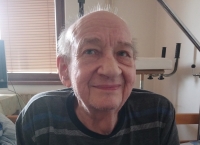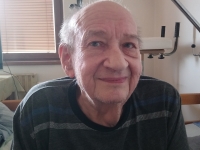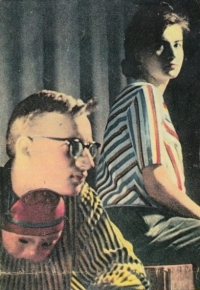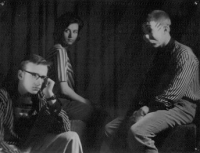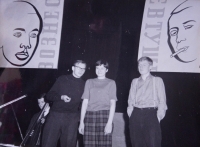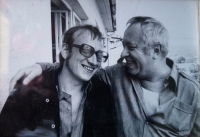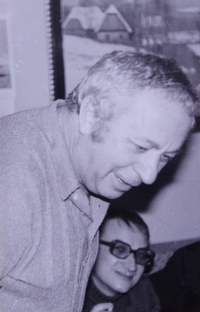I enjoyed doing all the things I did
Stáhnout obrázek
Bohuslav Matyáš was born on November 30, 1942 in Trnava to Irma Furmanová and Bohuslav Matyáš. After the war, his father got a job as a technician at the Třinecké železárny (Třinec Ironworks), so they moved to Czechia. In 1960, Bohuslav graduated from the grammar school in Český Těšín and thanks to his teacher and theater club leader Jan Havlásek, he decided to apply for the Academy of Performing Arts in Prague, where he unfortunately failed the entrance exams. He enrolled at the Faculty of Arts at Palacký University - music and Czech language, but eventually graduated from the Faculty of Arts at Palacký University with a master‘s degree in bohemistics and history. During his studies, he began to publish in a student magazine, contributed to Stráž lidu, became a broadcaster and later editor of the Olomouc radio station and the district radio broadcast over the wire. He devoted himself to music - he played the violin with a dulcimer band and was a member of an amateur theater group - he performed in Zápalka-kabaret. From the time of his studies and acting in an amateur theater group, the State Security was interested in him (the documentation of the State Security Archive of the Czech Republic shows that he was later, in the 1970s, listed as a person under investigation and a registered enemy), but only a fraction of the documentation has survived. In 1968, he joined the Communist Party of Czechoslovakia, but was expelled after nine months because of his views. During the August occupation of Czechoslovakia, he became a broadcaster for the illegal Olomouc-based programme Dubček-Císař ABX. With the incoming normalization, he lost his job at the radio station and was expelled from the Union of Journalists and the Writers‘ Union. He worked briefly as an employee of the Olomouc Dům osvěty, but then worked as a laborer until the fall of the regime. He started out in the panel factory of Pozemní stavby in Bělidla. From being a journalist and radio reporter he became an assistant greaser at a rotary slate furnace, a burner and finally a crane operator. After moving to Otrokovice, he worked as a warehouseman at a machine and tractor station, and later as an inspection technician for lifting and pressure equipment. After 1989 he returned to writing - he published in the magazine ZVUK (cultural review of the Zlín region; abbreviation Zlín-Vsetín-Uherské Hradiště-Kroměříž) and worked in the Zlín and Olomouc radio stations. In 2023 he lived in Otrokovice. He died on November 26, 2025.
